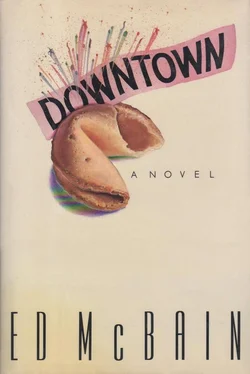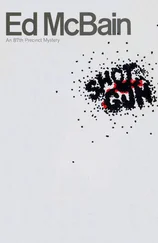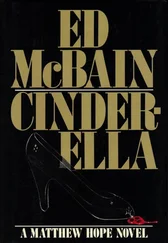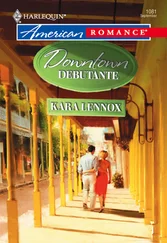“Sir?” he asked. “Did John admit you?”
He looked extremely puzzled. Had the system somehow broken down?
“Mama’s expecting me,” Michael said.
“Who’s Mama?” the young man asked.
Michael winked.
“John knows,” he said.
“It’s just that I haven’t got a table,” the young man said.
He seemed on the edge of tears.
“We’ll wait at the bar,” Michael said.
“But how will I know her?” he asked.
“Don’t worry about it,” Michael said, and winked again.
He took Connie’s elbow and led her toward a bar hung with rotating green floodlights that restlessly swept the room like the eyes of Martians, striking the tables around the dance floor, exploding upon them like summer watermelons and then moving on swiftly as if there’d been a prison break, Michael’s motion-picture associations recklessly mixing similes and metaphors, the probing green searchlights in a London air raid, the sky-washing green klieg lights outside Graumann’s Chinese, green tracer shells on a disputed green killing field — but in reality the shells had been yellow and red and the world of Oz was green and loud and somewhat frightening in its insistence on colorization. They sat on high-backed stools alongside a young man dressed as a Cowardly Lion whose mane, awash in the overhead light, looked as green as wilted asparagus.
He turned to Michael and said, “You’re in the wrong movie.”
Ever since Christmas Eve, Michael had been thinking exactly the same thing.
“What are you, Twelve O’clock High?” the lion asked.
“A Guy Named Joe,” Michael said.
“She’s The World of Suzie Wong, am I right?”
“Shanghai Gesture,” Connie said.
“What’ll it be?” the bartender asked.
“Lost Weekend,” the lion said, and nudged Michael with his elbow.
Michael figured that in this splendidly green place a person should order either crème de menthe or chartreuse.
“Do you know how to make a hot rum toddy?” Connie asked.
“Come on, lady,” the bartender said.
“A Beefeater martini then,” she said, “on the rocks, two olives. Green.”
“Tonic with a lime,” Michael said. “Green.”
“Hard or soft, the minimum’s the same,” the bartender said.
“That’s okay,” Michael said.
“And besides, the tonic costs three bucks.”
“Fine,” Michael said.
“Hello, darling,” a voice behind him said. “You’re out of costume.”
He turned.
Glinda the Good Witch of the North was standing there in a diaphanous blue gown, wings on her shoulders, waving a wand. Wings on his shoulders, actually, since Glinda was in reality Phyllis from the Green Garter, with whom Michael had danced earlier tonight, oh what a small world Oz was turning out to be, not to mention the city of New York itself. Phyllis was with a Scarecrow who under all that straw turned out to be Gregory who had rescued Michael from the bad guys and then admired his buns, curiouser and curiouser it was getting to be.
“A Pink Lady, please,” Glinda, or Phyllis, or both, said to the bartender.
“And a Whisper, please,” Gregory said.
The room was stultifyingly hot. Michael took off the bomber jacket and draped it over the high back of the bar stool. The music was still deafening, but the beat was slower now, designed for dirty dancing, the bass guitar chords jangling insistently into the room like the bone-jarring sound of bedsprings in a cheap hotel, the black girl’s gospel-singer voice soaring to the roof where the air was thin and clear, high above the poisonous green smoke, setting the rafters atremble the way it had back home in Mississippi, where Michael imagined she used to sing with the Sunday choir.
“Dance with me,” Connie said.
There was — for him in the next several moments, and perhaps for Connie as well — the certain knowledge that they were the two most beautiful people in the joint, perhaps in the entire city, glowing with an inner light that shattered the emerald-green myth and illuminated them as sharply as if a follow-spot were leading them out to the dance floor. In the movies, this would have been Ginger and Fred, he in elegant tails rather than Levi’s and a sweater, she in a long pale gown rather than jeans and leg warmers and a long-sleeved blouse. And in the movies, they would glide out onto a crowded dance floor — just as the dance floor here was crowded with people pressed against each other, sweating against each other, pumping against each other, dry-humping to the thud of the guitars and the angelic voice — and the crowd would part as Fred stepped out and Ginger followed, those first graceful steps indicating to the mere dancers on the floor that here were italicized dancers, here were goddamn capitalized DANCERS to be reckoned with! And the floor would clear at once, and they would be alone at last, a heavenly mist rising from beneath their feet, and they would dance divinely on clouds, oh so easy, oh so beautifully airy and light and incredibly easy, the way Michael and Connie were dancing now.
The black singer from Mississippi was caressing the dirty lyrics of the song as if the devil had entered her little church and corrupted not only the minister but the entire congregation. The song’s double meaning was as subtle as a rubber body bag, designed to be understood by the dullest adolescent. With a forked tongue, the song spoke of “breaking and entry” and “shaking and trembling” and “taking so gently,” the rhymes so slanted they were bent, the stumbling lyrics pounded home in a tune as simple as the village idiot. But transformed by Ginger and Fred, this crudest of melodies with its thinly disguised pornographic patter became a Cole Porter accompaniment to a dance of unimaginable sensitivity and skill.
Oh how they floated on that sea-green dance floor, oh how they drifted airborne on wafted winds of invention, oh how they wove intricate terpsichorial patterns around and among the stunned bystanders who watched them in envy and awe, open-mouthed and wide-eyed, here a black teenager wearing a modified Afro and a Scarecrow’s stuffed suit, here a stunning brunette in a green micro-mini and braids and red stiletto-heeled shoes, here a lanky, loose-limbed fellow who strongly resembled a young Ray Bolger, and here a beautiful, long-legged woman with short blonde hair and wide brown eyes that opened even wider as he and Connie glided — holy Jesus!
It was Jessica Wales.
Dressed as the Wicked Witch, wearing a skintight black gown, and sparkly red high-heeled shoes, and pale white makeup and blood-red lipstick, and dancing with—
Arthur Crandall.
Who looked portly and pompous and pleased as punch, which was probably the way most fat men looked when they had slender gorgeous blondes in their arms.
“Long time no see,” Michael said.
The self-satisfied smile vanished. Perhaps Crandall had expected Michael to be in handcuffs by now, in a holding cell at one or another of the city’s lovely police stations. Or perhaps he’d expected him to be in a garbage can behind one of the city’s many beautiful little McDonald’s locations, which was where Alice might have left him, given her wont. But wherever he’d expected him to be, it was certainly not here in a smoke-filled disco called Oz at twenty minutes past three on Boxing Day.
He went immediately pale.
But not because he thought Michael was a murderer.
Oh, no.
That would have been good enough reason to have gone pale, oh yes, a wanton killer here inside this nice noisy club, a cold-blooded murderer here inside this jewel of a joint, good enough cause for Crandall’s eyes to have grown round with fear. But whereas Michael had bought Crandall’s little act in the St. Luke’s Place apartment on Christmas morning — “ Careful! He’s a killer!” — he now knew far too much to accept it all over again. Green lights blinking on his round, sweaty face, Crandall was realizing that somehow Michael had tracked Mama here. Which meant that he had also tracked Mama to Crandall himself.
Читать дальше












